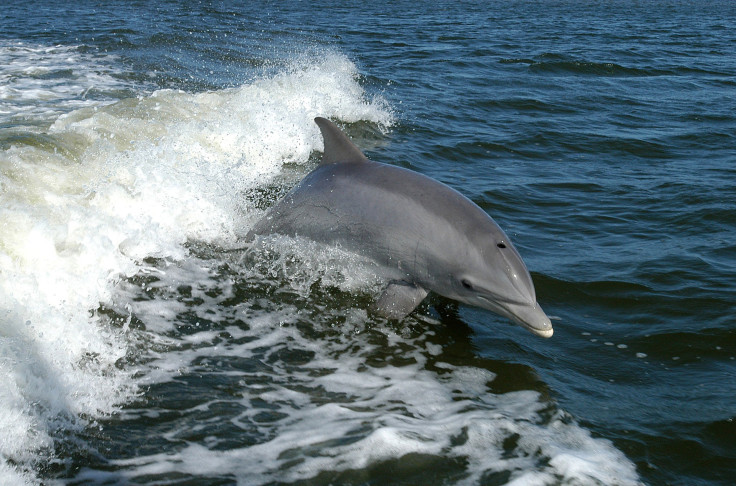US Government-Backed Study Links Increased Dolphin Sickness In Gulf Of Mexico To BP’s Deepwater Horizon Accident; BP Disputes Findings

A joint study, led by the National Oceanic and Atmospheric Administration, or NOAA, has found that dolphin populations in the Gulf of Mexico, where BP’s (NYSE:BP) 2010 oil spill contamination occurred following an explosion on its Deepwater Horizon offshore rig, are suffering from serious heath problems and are close to death.
The peer-reviewed study, led by a team of scientists from government, academia and nonprofits, which was conducted in August 2011, identified previously unseen health conditions such as lung disease and hormone defects in bottlenose dolphin populations commonly found in Louisiana's Barataria Bay. The study was published in the journal Environmental Science & Technology on Wednesday.
“I’ve never seen such a high prevalence of very sick animals -- and with unusual conditions such as the adrenal hormone abnormalities,” Lori Schwacke, the study’s lead author said, in a statement.
The research team temporarily captured 32 dolphins from the oil-soaked Barataria Bay and conducted comprehensive tests including ultrasound scans on 29 dolphins, before releasing them. The team also studied another batch of dolphins from Sarasota Bay, Fla., which was not affected by BP’s oil spill.
About half of the 29 dolphins from Barataria Bay had a “guarded or worse prognosis,” and 17 percent were in "poor or grave" condition, meaning the dolphins “were not expected to survive,” the study said. Meanwhile, the dolphins sampled in Sarasota Bay, were found to be in "good or fair" condition.
Researchers found that moderate to severe lung disease was five times more likely in the Barataria Bay dolphins, with symptoms including "lung masses and consolidation," while 25 percent of the Barataria Bay dolphins were “significantly underweight and the population overall had very low levels of cortisol, an adrenal hormone, which are critical for responding to stress.”
With low levels of the hormone, the dolphins could fail to generate the required energy burst to respond to predators, the researchers said, adding that some of the dolphins had “multiple health issues going on, such as lung disease, very high liver enzymes, and indications of chronic inflammation.”
The researchers said the symptoms exhibited by the Barataria Bay dolphins were similar to those resulting from petro-carbon or fuel-oil contamination.
“The decreased cortisol response is something fairly unusual but has been reported from experimental studies of mink exposed to fuel oil. The respiratory issues are also consistent with experimental studies in animals and clinical reports of people exposed to petroleum hydrocarbons,” researchers said, in a NOAA web post.
To ensure these health issues were not caused by other existing pollutants in the bay, researchers examined alternative theories such as exposure to other man-made chemicals. However, the study showed relatively low concentrations of chemicals, including common pollutants, in the tested dolphins, as compared to other coastal dolphin populations.
However, London-based BP, which paid for the study, refuted the findings and said that researchers did not prove the link between the oil spill and the dolphins' health problems.
"The symptoms that NOAA has observed in this study have been seen in other dolphin mortality events that have been related to contaminants and conditions found in the northern Gulf, such as PCBs, DDT and pesticides, unusual cold stun events, and toxins from harmful algal blooms," Jason Ryan, a spokesman for BP, said, according to the Guardian. "The symptoms are also consistent with natural diseases such as Morbillivirus and Brucellosis."
In April 2010, a blowout of a BP-owned well 5,000 feet below the ocean's surface caused an explosion on the Deepwater Horizon drilling rig about 40 miles off the Louisiana coast, spewing about 4.2 million barrels of oil into the sea. Over 87 days, an oil slick spread across open water to cover more than 1,000 miles of coastline, in one of the worst oil spill disasters in the world.
© Copyright IBTimes 2024. All rights reserved.






















